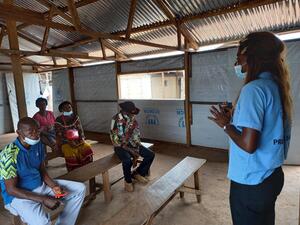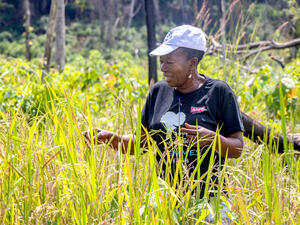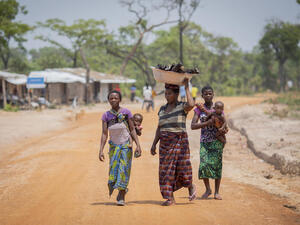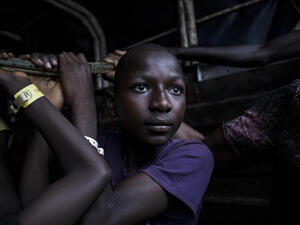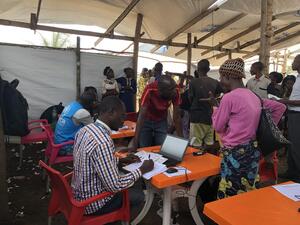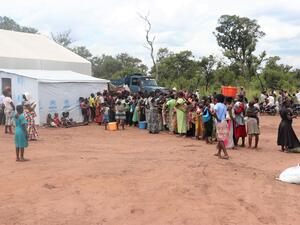UNHCR concerned about harassment at Congolese camp in Angola
UNHCR concerned about harassment at Congolese camp in Angola

Congolese refugees in Viana camp, south of Luanda. There are some 12,500 refugees from the Democratic Republic of the Congo in Angola.
LUANDA, Angola, Oct 10 (UNHCR) - A recent spate of harassment at a refugee camp near the Angolan capital has prompted the UN refugee agency to appeal for the authorities to guarantee the safety of refugees and aid workers there.
Congolese refugees at Sungui camp in Bengo province, 72 km north of Luanda, have allegedly been harassed over the last three months. In the latest incident this week, armed uniformed men entered the premises at night, threatened a refugee and stole some equipment from a container belonging to UNHCR's partner INTERSOS, an Italian non-governmental organisation in charge of constructing houses and schools.
Previous incidents involved an individual entering the camp with a tractor in mid-September and claiming the land for his own agricultural use, and an armed attack and hijacking of an INTERSOS vehicle driving toward Sungui, in late July.
UNHCR has expressed concern at the frequency and pattern of harassment, which may have resulted from a dispute over the use of this particular piece of land. The agency was allocated the land at Sungui in 2002, to be used for agricultural purposes by refugees. About 300 refugees were relocated there in May this year, all Congolese refugees who had fled the Democratic Republic of the Congo (DRC) in 1977 during the Katanga war.
During Angola's 27-year civil war, UNHCR assisted these refugees who were relatively well integrated into their host communities but had to face displacement along with other Angolan nationals. The refugees at Sungui had initially lived in a community in Bengo province before moving to a temporary location in Luanda following a rebel attack on the community.
The UN refugee agency has appealed to the Angolan authorities to ensure that such incidents do not repeat themselves and to guarantee the safety of both refugees and humanitarian workers in Sungui and other refugee sites in Angola.
There are some 13,000 refugees and asylum seekers in Angola, the majority of whom come from the DRC. While many long-time refugees have now integrated in urban or rural communities, UNHCR is still assisting 9,600 of them in Luanda, Sungui, Viana (south of Luanda) and Kautepwe (Moxico province), among other provinces. The refugees get support in farming and other self-reliance activities, as well as the construction of houses, classrooms and health posts for their communities.



